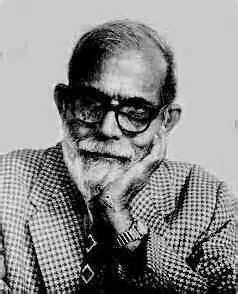The Century of Self (2002)
#1. Happiness machines
"This series is about how those in power have used Freud's theories to try and control the dangerous crowd in an age of mass democracy." —Adam Curtis'

Yet another documentary, in fact, it is his famous one, from the disillusioned Oxford academia who traded his robe and mortarboard for a place behind the camera. This time around, he tackled something quite unique and it is quite mind-boggling, actually.
It shows how the mind of the general public was and is still being manipulated by people in power for their own vested interest.
 |
| Irrational suppressed minds
|
The story starts in the late third of the 20th century in Vienna with Sigmund Freud. He postulated that human beings all have suppressed aggressive and sexual feelings. Civilization in essence, put a lid for them to demonstrate this primitive feelings and law and order prevailed. And that people in power were using this to control people in the name of mass democracy. His profession, of analyzing repressed memory and dreams was not accepted by Viennese high society then.
Over in New York, Freud's nephew, Edward Bernays was instrumental in using this same theory, not for therapy but to manipulate the masses to enrich American businessmen later.
 |
| Edward Bernays |
In 1914, America joined the Great War. Bernays was employed by Woodrow Wilson as a publicist to spread the nation's intention to join the war of spreading democracy. After the War, he joined in the Paris Treaty. Bernays was impressed with the masses' admiration of the American president. He thought that if people could be manipulated during the course of the war, they could also be moulded in peacetime.
If in war, it was called propaganda, in peacetime Bernays called it 'public relations'. Bernays' public relations office received many clients. Philip Morris was one such client. At a time when smoking amongst women was a taboo, Bernays was approached to increase sales.
 |
| Torch of freedom? |
With the help of psychoanalysis, he discovered that a cigarette was a phallic symbol, denoting power. So during an Easter Day parade, he paid a few ladies (non-smokers) to light up and join the parade, holding the lit cigarettes. He also summoned newspaper to print the whole fracas in their papers. The tagline was that they were holding the 'Torch of Freedom'. It went down very well with the women folks. After that was America stood for - freedom, liberty and Statue of Liberty. Suddenly women started smoking giving a false sense of freedom and control (of what?).
 |
| Torch of freedom? |
Hence bred the generation of people who started buying things not because they need it but because they desire it. They think they need it and feel happy about having it. Consumerism had started.
To market the mass-produced things that started during WW1, this technique was taken to a different level. Products placements are done in movies and magazines. Paid celebrities and even psychologists (with biased studies) were used to endorse products. People without means were coaxed to venture into the stock markets, loans courtesy of the banks that Bernays represented!
It was a time when Bernays could do no wrong. Even the uninteresting President Coolidge had his image boosted with his help.
While in Europe, times were bad after WW1. Freud was bankrupt. Bernays marketed his books in the US which created lots of controversies but he capitalized on it and laughed all the way to the bank.
Freud, by this time, was quite disillusioned and pessimistic about mankind. He thought that the unconscious aggressive feeling was more dangerous than he thought. He described Man as a sadistic and ferocious animal that cannot be tamed from he saw in the Russian Revolution.
In the US, Walter Lippmann suggested that democracy was wrong for the unconsciously irrational people. He suggested a new elite to head the unbewildered herd! Bernays took this to stimulate the inner desires and manage them and increase his business. They had created contented individualistic docile happiness machines while the leaders do what they want to do.
On 29.10.1929, markets collapsed. Consumers stopped buying, Bernays fell from grace and violent street fights were the order of the day in the US and Europe.
Freud, stricken with cancer of the jaw, writing from the Alps, wrote that civilization is an expression to control the animal instincts of man. He cannot be allowed to express too freely as it very dangerous and they always need to control!
In fact, Adolf Hitler had this same vision. Democracy, he thought, unleashed dangerous individualism. He let the Nation plan for the people. It bound people together and forged the minds of people for the nation. Like a pack of wolves, they were aggressive to outsiders. This same irrational forces that drew people to products drew people towards Hitler.
 |
| Adam Curtis |
Back in the USA, after the 1930's collapse, FD Roosevelt used the power of the nation to control the free market to strengthen democracy. In his New Deal policy, he appointed bureaucrats to plan mega projects to stimulate the economy. Roosevelt, unlike Bernays and the corporates, believe that people were rational! He appointed statisticians to obtain approval ratings on his policy. The corporates retaliated by challenging his policies. They lured the public with more emotional attachments. The 1939 World Fair showcased a futuristic view of America with lures of more new products!
1938 came and Annexation of Austria (Anschluss) again showed the irrational behaviour of man and brutal treatment of the enemy of the state.
A displaced Freud, in London, succumbed to his malignancy before witnessing the savages forces of Man at work in the death camps.
The first part of the documentary ends with the gruesome reel of dead bodies of mostly preteens thrown down a slide leading to a mass grave!



















